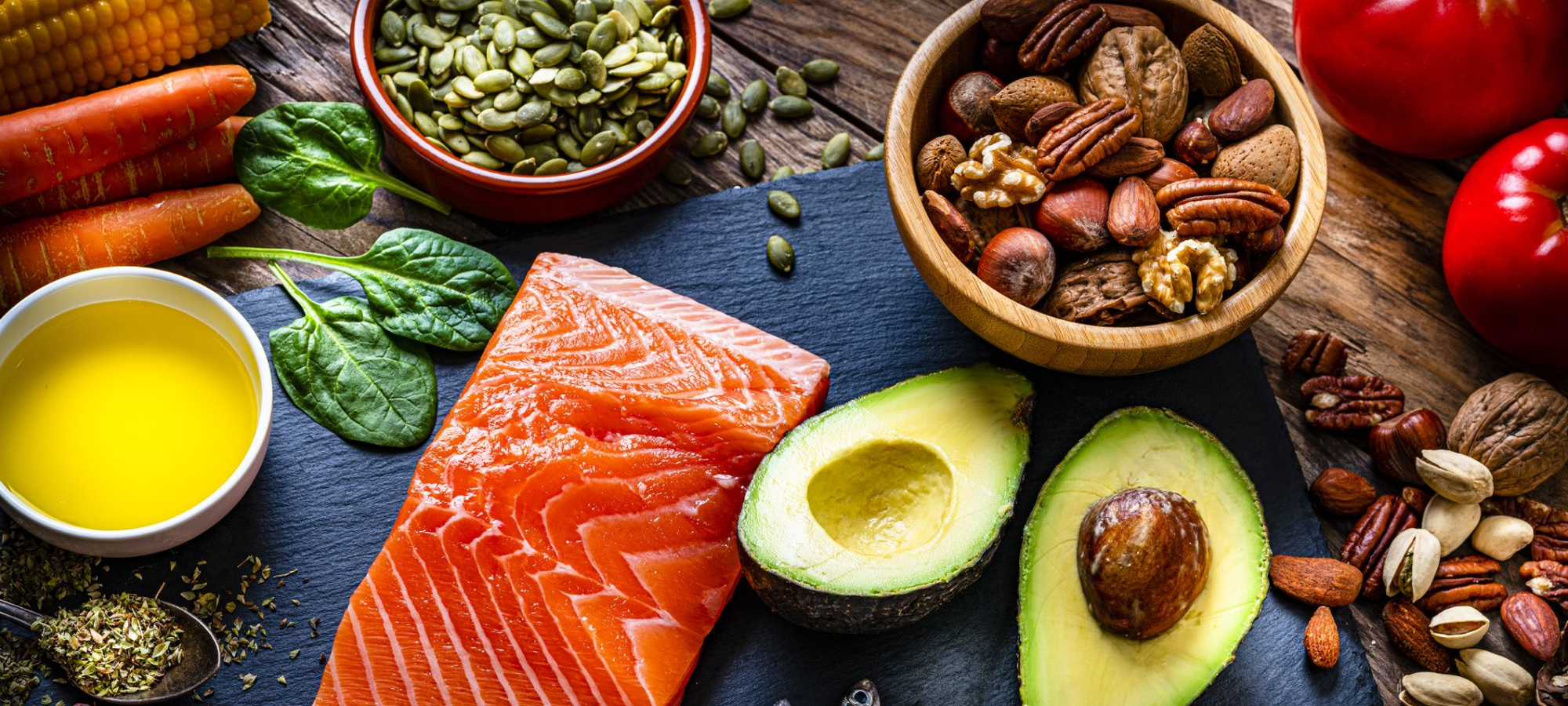The Mediterranean Diet Q&A

Following her webinar on the Mediterranean Diet, Dara Godfrey, MS, RD, registered dietician at RMA of New York, responded to attendees’ questions on the health benefits of this diet and how it supports fertility. Her responses to these questions are below:
- What is your opinion on dairy?
Dairy can be a healthy part of one’s diet especially for fertility. Although it is not a fertility-enhancing requirement, there are many potential health benefits of including minimally processed dairy products into one’s diet. Many sources of dairy can help provide calcium, good quality protein, fat-soluble vitamins (A,D,E,K), B vitamins as well as probiotics and iodine. However, not all dairy is created equal.
Limit dairy coming from highly processed foods such as ice cream and cream cheese and consider choosing full-fat dairy that is organic, grass-fed and hormone free. Full fat yogurt, cottage cheese, kefir, and A2 milk may be easier to tolerate - along with sheep or goat’s milk. Some population groups may feel better when minimizing or avoiding overall dairy intake (like those who are lactose intolerant), but dairy should not be something to be feared.
- Is gluten OK to have in your diet?
Gluten, a protein found in several grains like wheat, barley and rye, is not something to be feared especially gluten found in whole grains for people who can tolerate it. Gluten should be avoided by those who have celiac disease, a wheat allergy or who may be gluten intolerant (feel bloated or are in pain after ingesting foods with gluten in them) or who have other autoimmune conditions. Keep in mind, gluten free foods may not be a healthier alternative to a gluten-containing foods. Many gluten-free foods are highly processed and often contain higher carbohydrate ingredients than their gluten-containing counterparts. Fillers are also often added to gluten-free foods to help give the a similar mouthfeel to gluten-rich foods.
- What foods would you recommend eating before an egg retrieval? And then similarly before a transfer?
Whether prior to an egg retrieval or before an embryo transfer, prioritizing protein-rich foods is something I recommend to both men and women to help optimize their health and fertility. Proteins are literally the building blocks of your body’s cells. Try to include a variety of proteins coming from eggs, fish, meat, poultry, dairy, beans, legumes, nuts and seeds. Along with proteins, choose a predominantly whole foods, minimally processed diet that includes a variety of vegetables, fruits and whole grains along with health sources of fats (think avocado, extra virgin olive oil and nut butter).
- Thoughts on eating pork or burgers in the beginning of IVF?
Good quality, grass fed red meat and pasture raised pork are both nice protein source that can be incorporated into one’s diet during fertility treatments.
- How much grass fed red meat and how often is red wine considered moderate?
I encourage people to include a variety of good quality protein into their diet, so there isn’t a specific amount of grass fed meat that I typically recommend. I usually customize my recommendations depending on the patient I'm working with. As for red wine (or other alcohol), less is best as alcohol may impair hormonal balance. But a moderate amount is considered less than 4 glasses a week.
- How many grams of protein a day is recommended?
I typically recommend 1g/kg of body weight. So for a woman who is 130 lbs (or 59kg), that equate to 59g of protein daily (split up between 3+ meals, or approximately 20g at each meal).
- You mentioned some of your female patients don’t get enough protein - how do you know if you’re getting enough?
I collect food records for all of my patients so I can get a picture of what people are typically consuming on a daily basis. When analyzing those food records, I’ve found that women are often falling short of the 1g/kg of protein daily. Prioritizing sources of protein at every meal (as well as snacks) can help women reach their protein goals.
- What would is a typical breakfast, lunch and snack?
There’s no ’typical’ meal I suggest as I like to customize meals for patients based on their current eating habits, likes and dislikes. However, I do focus on recommending a predominantly whole foods diet that includes a wide variety of fruits, vegetables, whole grains, animal and plant proteins as well as other high fiber foods. I also think it’s important to include healthy fats to meals to not only help with satiety, but also to help with hormone balance.
- If I don't eat dairy or eggs, what can be eaten for breakfast?
There are so many other options for those people who dislike eggs or dairy. For a nice morning protein source choose nuts, seeds or nut butters to add with a source of fiber (like oats, bran, flax or chia seeds). A nice example would be plain oatmeal with cinnamon, chia, flax, mashed raspberries paired with some melted almond butter. For those who like alternative yogurts (which are often super low in protein), adding in hemp seeds, pistachios, slivered almonds or other nuts can help boost protein content in the morning. A tofu scramble with veggies and avocado is a nice savory alternative that is protein-rich for a morning meals.
- Thoughts on avocado oil?
Avocado oil is a fabulous oil to cook with as it has a high smoke point and comes from healthy monounsaturated fats.
- What about nut butter?
Nut butters are a great addition to a breakfast or snack to boost protein and healthy fats. Choose nut butters with limited ingredients, like nuts and salt (avoiding added oils and sugars)
To review Dara's complete webinar, click here.
